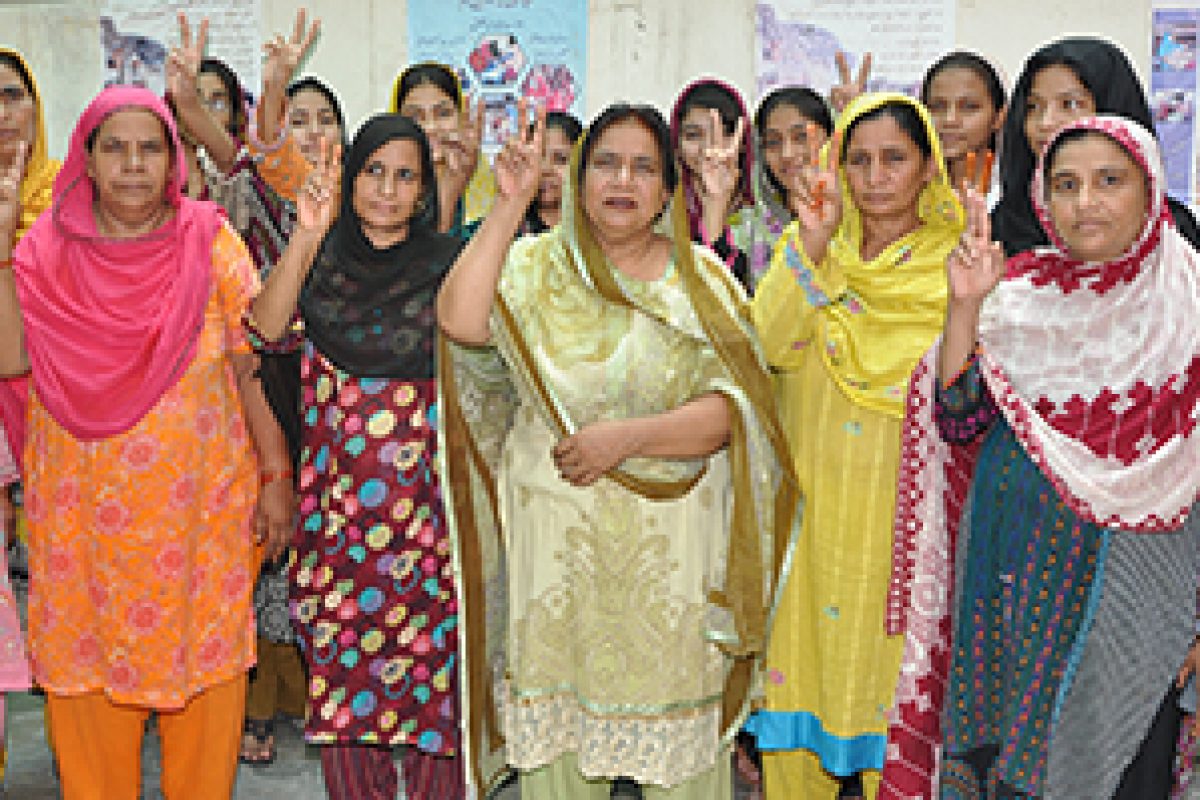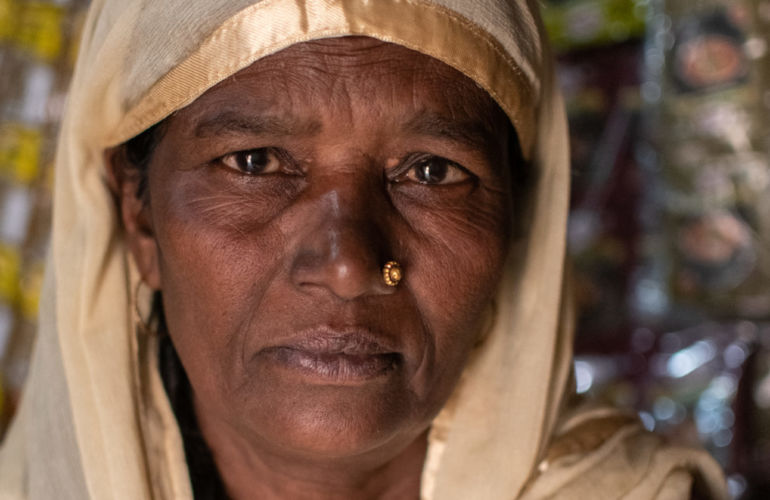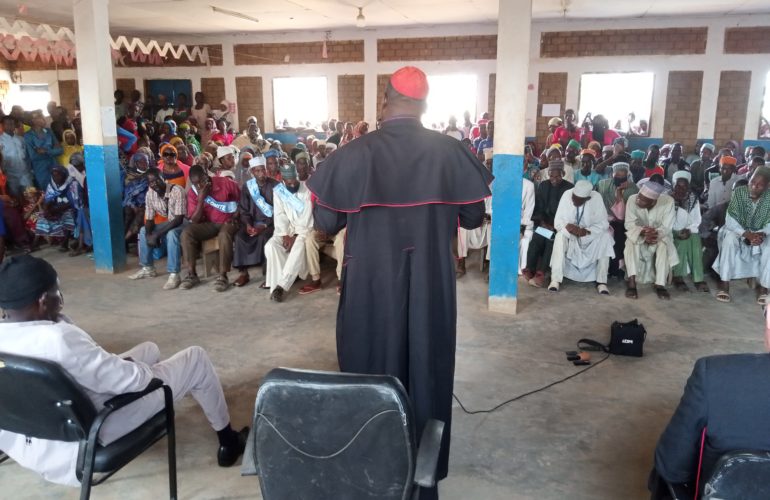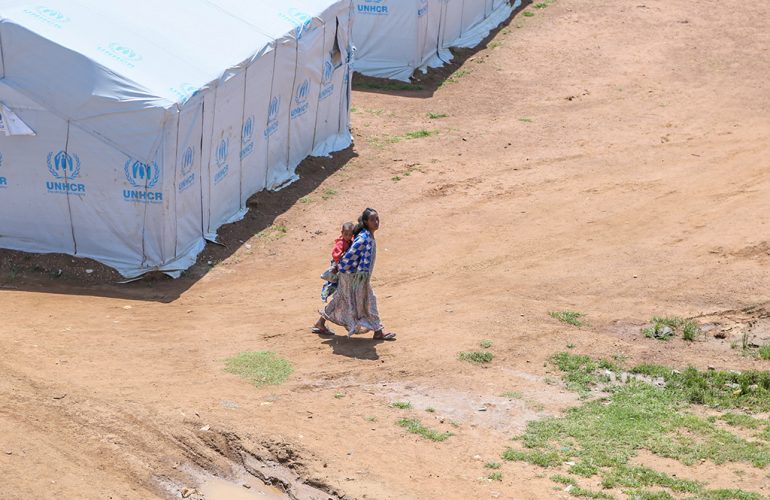International Women’s Day 2015

On the occasion of International Women’s Day, the International Catholic Migration Commission celebrates the economic, political and social achievements of women in bringing about sustainable change in their communities, while calling for increased equality, especially for migrant and refugee women.
Following this year’s theme “Make it happen: encouraging effective action for advancing and recognizing women”, ICMC takes the opportunity to look back at past projects that have allowed women to develop their potential and have enabled them to create models for sustainable development.
In 2011, in collaboration with the Sarsabz Foundation, ICMC has established 10 cooperatives in Pakistan with the aim of improving access of home-based women workers to decent work opportunities and social security. The project, based in the Jhang and Faisalabad districts of the Punjab province, aimed specifically at providing vocational training to women, improving the capacity of women in engaging in collective bargaining, as well as promoting sustainable business activities and financial independence for home-based women workers.
“ICMC and Sarsabz helped us get organized and access knowledge and skills. They were on our side when we were going through rough times”, explains 53-years old Munawar Sultana, the President of the Kushhal Women’s Cooperative working in textile sector. “Many of us spend their whole lives believing that nothing can be done to improve their conditions, being cheated by middleman and subcontractors who fix exploitative wages and delay payments. However, once in a while an opportunity to develop something different arises. In our area of Waris Pura, Faisalabad, such an opportunity came with the establishment of the Kushhal Cooperative.”
Since its founding in 2012, Kushhal has grown from 30 to more than 280 members. Women of the cooperative were able to increase their monthly income from Rs. 1500 (equivalent to 14 US dollars) to Rs. 6000 (around 60 US dollars). In addition, the cooperative members have been able to save a total of Rs 85,230 (approximately 830 US dollars) for the purchase of additional equipment and maintenance needs.
“Being a cooperative member is an inspiring and motivating experience. Our center offers the latest equipment, a production room, day care for children and training facilities to its members”, says Munawar. For all women in the cooperative, membership has provided an important opportunity to gain new skills, create a network of social support, and develop greater confidence in their abilities both at work and in their personal lives. “The cooperative has turned us into confident women. We are contributing to the progress of our families. Before joining the cooperative I had to rely entirely on my husband. Now I can buy things myself because I make my own money. This protects me if my husband loses his job”, adds Munawar.
As a president of the cooperative, Munawar Sultana also gained respect among the community, thanks to the guidance and support she provided to all members. “I managed to be the President of the cooperative”, she says. “Today, I feel very proud of myself for everything I was able to achieve with some efforts and a good dose of perseverance. I also want to thank ICMC and the Sarsabz Foundation for supporting this project that led to the professional and economic development of home-based workers in our area.”
The establishment of the Kushhal Cooperative is a good example of women’s empowerment through activation of cooperatives, advocacy and capacity building. The project allowed home-based women workers to find a collective bargaining voice through the cooperative, which led to a significant increase in their income. As a result of the project, women in the cooperative have now increased access to social services (health and education in particular), as well as to social protection services.
In 2014, ICMC started a new project in the Charsadda district of Pakistan to provide livelihood support for Afghan refugees and Pakistani host communities. The project focuses on providing vocational training to 600 refugees and host communities and aims at increasing employment opportunities and income for trainees. Half of the beneficiaries are women and four training centers have been set up specifically to provide training to female members of the Afghan and local communities. Through the provision of job placement and the establishment of linkages with existing business enterprises, ICMC aims at fostering economic development and promoting equality between men and women in the Charsadda district of Pakistan.


